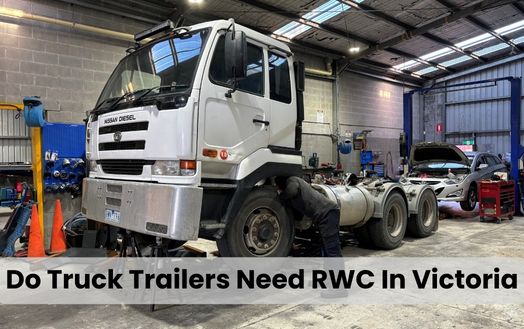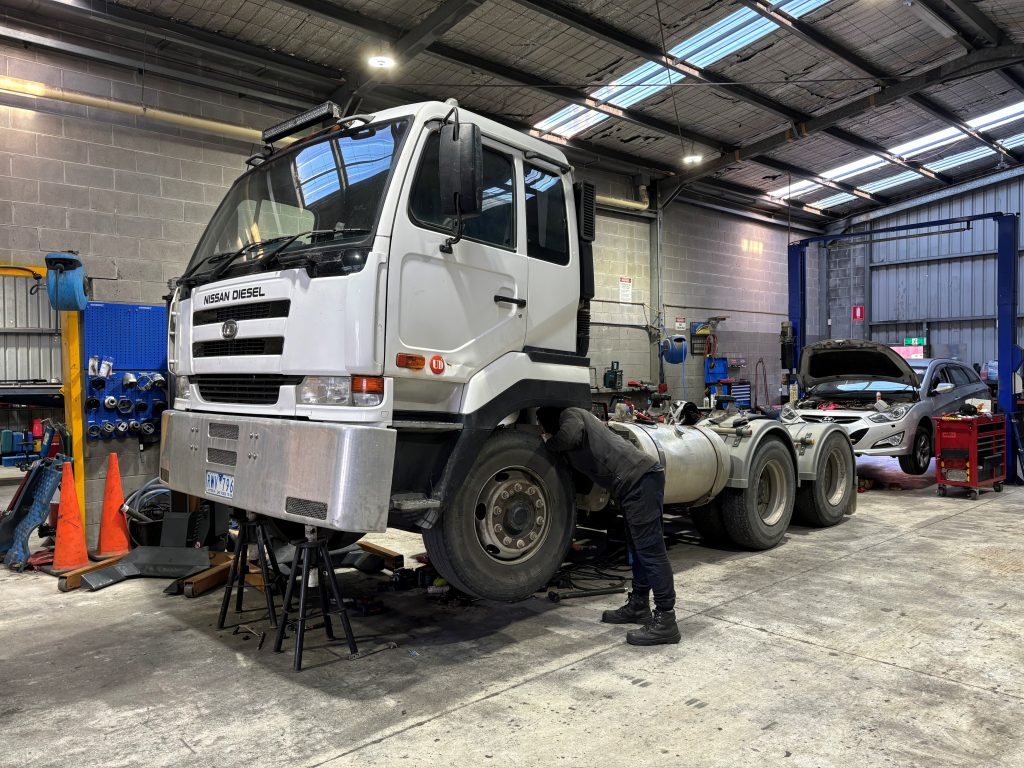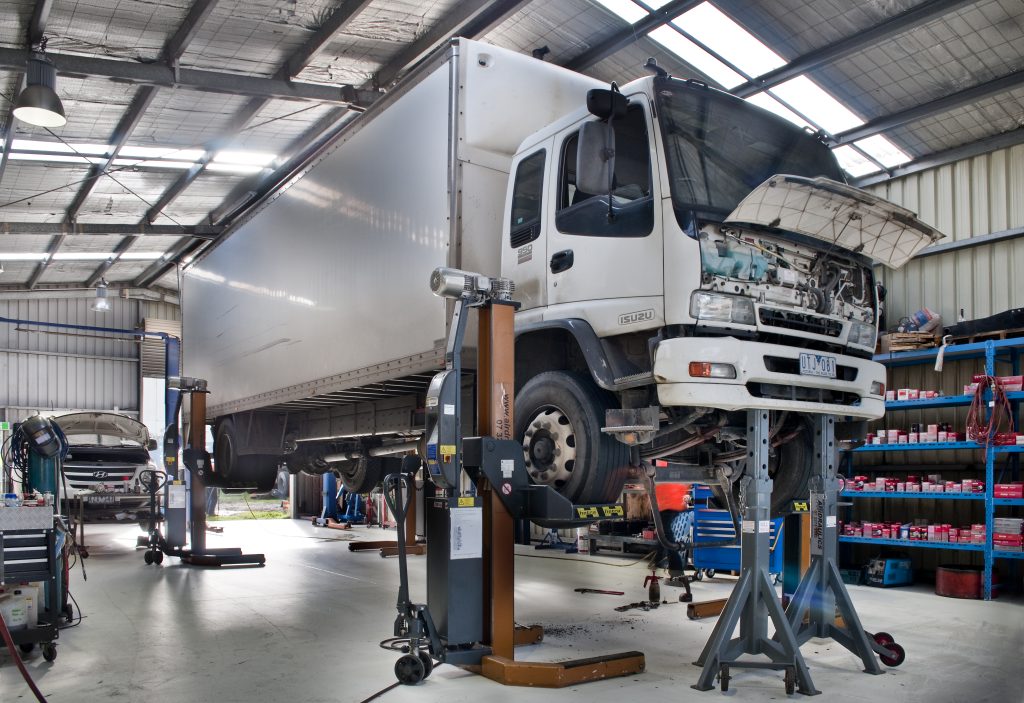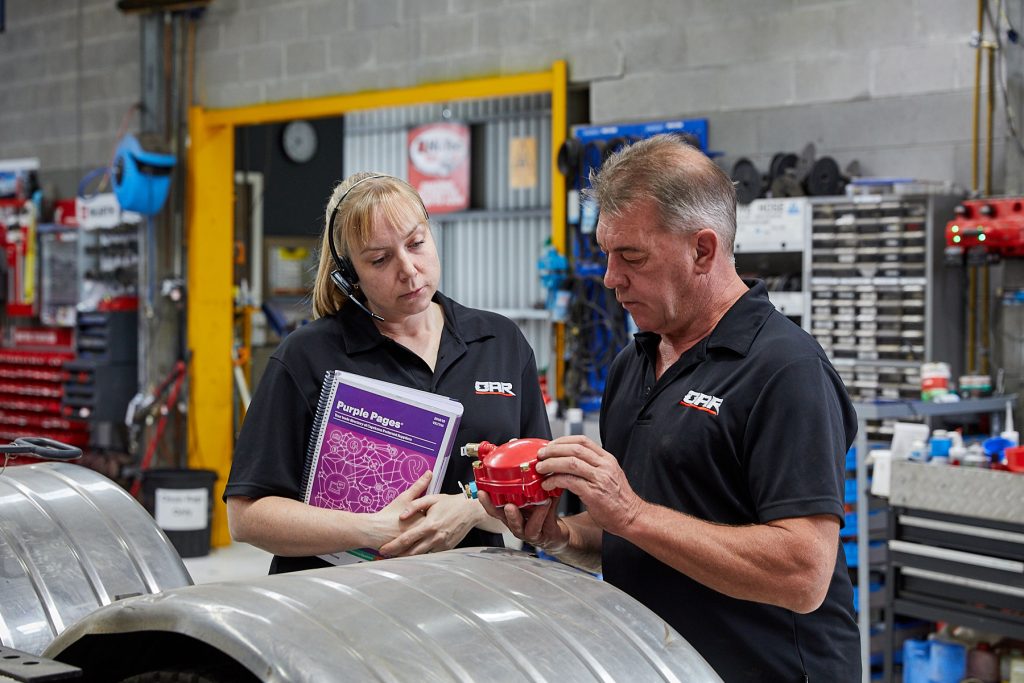
As we navigate the intricate web of regulations surrounding truck trailers in Victoria, the question arises: do these colossal machines need a Roadworthy Certificate (RWC) to grace the roads of this state? The answer to this inquiry is not as straightforward as one might assume, leading us to unravel the complexities and implications of this matter.
Do truck trailers need RWC in Victoria? Let’s explore into the nuances of RWC requirements for truck trailers, exploring exemptions, rules for brand new trailers, and the repercussions of non-compliance.
In Victoria, truck trailer inspections must follow Roadworthy Certificate (RWC) requirements at a reasonable cost. These regulations govern truck trailer safety and compliance on Victoria’s roads. The Victorian truck trailer RWC covers many roadworthiness requirements.
Trailer structural integrity is a priority during RWC inspections. The chassis, coupling, and trailer body must be in good condition to meet the requirements. Before issuing the RWC, we must resolve any trailer safety concerns.
Second, truck trailer braking systems are crucial to road safety. Inspectors will thoroughly check the brakes, brake lines, and brake fluid to ensure they meet Victoria RWC standards.
We check the trailer’s lighting and electrical systems for visibility and road rules. Checking indicators, brake lights, and reflectors improves day and night safety.

Some trailers in Victoria require Roadworthy Certificate (RWC) inspections, but there are exemptions. Our exemptions simplify trailer owner processes and optimise resource allocation.
In Victoria, agricultural trailers used for farming or transporting livestock within a certain radius are exempt from RWC inspections. Trailers with a GVM below a certain threshold may also be exempt from RWC requirements. These exemptions reduce the regulatory burden on trailers with lower risks due to their use or size.
To comply with the law, trailer owners must know Victoria’s trailer RWC exemptions. Even if a trailer is exempt from RWC inspections, it may need to meet other safety standards to register. Staying informed about exemption criteria is crucial to avoid penalties or registration delays.
The inspection criteria for specially constructed vehicles are key to understanding Victoria’s Roadworthy Certificate (RWC) requirements for trailers. Roadworthy inspections are essential for custom-built trailers and transport solutions. Inspection of these vehicles requires a specialised approach due to their unusual designs and features.
During a roadworthy inspection of a custom-built vehicle, the vehicle tester closely inspects safety features. The vehicle’s roadworthiness depends on these safety features. We check everything from specialised braking systems to custom lighting configurations to make sure the vehicle is safe for Victorian roads.
Specially constructed vehicles that pass all safety checks receive roadworthy certificates. These checks protect the driver and other road users, as well as ensuring that the vehicle meets regulations. Specially designed vehicles can make Victoria’s transportation safer and more innovative by meeting these strict requirements.

Do truck trailers need RWC in Victoria? Victoria carefully inspects new trailers for compliance with the Roadworthy Certificate (RWC). Freshly assembled vehicles need a roadworthy certificate to meet safety standards. Victoria’s road transport regulator, Vicroads, requires this inspection to ensure trailers and caravans are in good condition.
New trailer inspections ensure safety and avoid road hazards. Despite being new, these trailers must pass rigorous roadworthiness tests. This protects occupants and other road users on streets and highways.
Some new trailers don’t need a roadworthy certificate. To determine if your trailer qualifies for this exemption, consult Vicroads or a certified inspector. To operate new trailers safely in Victoria, you must understand these regulations.
Maintaining safety and roadworthiness in Victoria requires understanding trailer RWC expiry. To drive in Victoria, trailers and caravans need a Certificate of Roadworthiness. This certificate verifies that the trailer meets inspection and safety standards. Keeping track of the certificate’s expiration date is crucial to avoid legal penalties and safety hazards.
Please refer to your trailer’s Certificate of Roadworthiness for its expiration date. The relevant authorities’ Register of Approved Vehicles can also verify your trailer’s roadworthiness certificate. Remember to renew this certificate before it expires to keep your trailer roadworthy and legal.
Not having a current Certificate of Roadworthiness can lead to fines and trailer registration issues. This emphasises the importance of trailer roadworthiness updates. Understanding trailer RWC expiration and taking proactive steps to comply makes roads safer for everyone.

A trailer’s Certificate of Roadworthiness requires a thorough inspection by authorised personnel. In Victoria, you need a roadworthy certificate to register a trailer or caravan. This certificate ensures that your trailer meets safety standards and is road legal.
Schedule an inspection with a licenced roadworthy tester to get a trailer roadworthy certificate. During the inspection, the tester will check your trailer’s lights, brakes, tyres, chassis, and more. Trailers that pass inspection receive roadworthy certificates.
After receiving the roadworthy certificate, you must register your trailer. Provide personal and trailer information on a vehicle registration form. The roadworthy certificate proves your trailer meets safety standards, simplifying registration.
Innovative inspection techniques have simplified the process of obtaining trailer roadworthy certificates, guaranteeing the registration of only safe trailers for use on Victorian roads.
After getting a roadworthy certificate for your trailer in Victoria, you must be aware of the consequences of violating safety standards during inspection. Noncompliance with roadworthy requirements can have serious consequences.
Victorian heavy trailers are required to pass rigorous safety inspections. A random inspection or incident that finds your trailer non-compliant can have serious consequences.
Non-compliance can result in heavy trailer nomination suspension or termination. Your trailer may not be usable until it passes a roadworthy inspection. This can cause delays, lost revenue, and operational issues. Operating a trailer that doesn’t meet roadworthy standards endangers you and other drivers.
Maintaining and meeting roadworthy standards can prevent these issues. Maintaining your heavy trailer’s roadworthiness ensures legal compliance, safety, and efficiency in transportation. Remember, compliance is essential for a successful Victoria trailer operation.
Do truck trailers need RWC in Victoria? It’s important to ensure that truck trailers in Victoria comply with Roadworthy Certificate (RWC) requirements to ensure safety on the roads.
While there are exemptions for certain trailers, it’s crucial to understand the rules and regulations to avoid any consequences of non-compliance.
By obtaining a valid RWC for your trailer and staying informed about expiry dates, you can help maintain the safety and integrity of your vehicle while on the road.
In Victoria, we can transfer our trailer registration to another state without a roadworthy certificate. As regulations vary, we must check the new state’s requirements before transferring the registration.
In general, transferring a trailer with a valid Victorian registration should be easy. Please check with the relevant authorities to ensure a smooth transfer.
Agricultural trailers require a special roadworthy certificate. For legal road use, these trailers must meet all safety standards.
Agriculture trailers need regular maintenance and inspections to stay legal. We can ensure safe and efficient agricultural operations.
For commercial trailers, roadworthy certificate checks are more frequent than personal ones. Commercial trailers have higher mileage and loads.
Maintenance and inspections keep these trailers safe and reliable on the road, reducing accidents and breakdowns. Maintaining commercial trailers requires proactive maintenance.
In Victoria, trailer-roadworthy certificates may cost more. These costs can be influenced by the trailer’s condition and roadworthy repairs or maintenance.
Plan for these possible additional expenses to guarantee a seamless certification procedure and secure vehicle transportation.
Without roadworthy certificates, Victorian trailers risk fines or impoundment. To avoid such situations, regulatory compliance is essential.
To prevent problems, be knowledgeable and proactive.